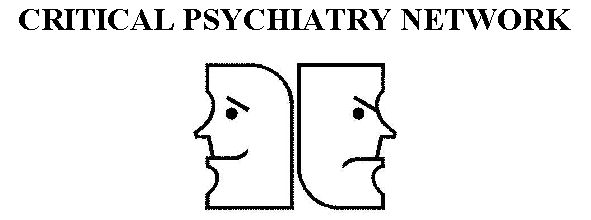
The Critical Psychiatry Network:
Position Statement
The Critical Psychiatry Network (formerly the Bradford Group) first met in Bradford in January 1999 to discuss Government proposals to change Mental Health legislation. Members of the Network are individual senior psychiatrists working in England and Wales, including members of the Critical Psychiatry Group, based at the Maudsley hospital in London. We are opposed to compulsory treatment in the community, and preventive detention for people who are considered to have ‘personality disorders’. We are aware of a growing sense of dissatisfaction among colleagues in psychiatry, which is related to our ambiguous social role. At the heart of this ambiguity is a conflict between care and coercion, which compulsory treatment in the community and preventive detention has thrust into the limelight. The coercive aspect of psychiatry is further emphasised by media representations that link madness and dangerousness. Psychiatrists have been blamed for not detaining patients more often and for releasing them 'too soon' into the community. As a result, many psychiatrists have responded by acting more coercively and using their powers to detain.
We believe that a different response is needed. Psychiatrists, politicians and the public must recognise the extent to which values inform seemingly objective medical decisions, and thus the importance of an ethical perspective on psychiatric practice. We urge psychiatrists to consider the contradiction between care and control in a new way, and to contemplate a situation in which they have less influence in decisions to detain and control. We believe that there is a need to resist attempts to make psychiatry more coercive. In its attempts to take forward this agenda, the Network has:
In the future, the Network is organising a conference for psychiatrists to debate these issues in the Spring of 2000. We also intend to organise more formal opposition to preventive detention and compulsory treatment in the community. The Network is particularly keen to work closely with other groups, especially User and Survivor groups, in advancing a reflective and critical perspective on psychiatry.
For further information about the Critical Psychiatry Network, please contact Joanna Moncrieff (phone: 0181 746 5640) or Phil Thomas (phone: 01274 414 007). You can also visit the Critical Psychiatry Network Website.
24/10/99